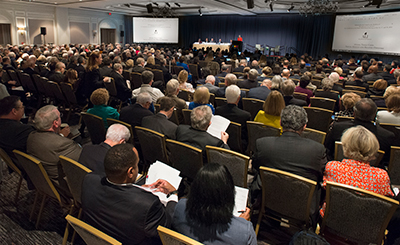Data Privacy
Data privacy law developed in the 1960s as a response to computer processing of personal data. Today, data privacy law is an interrelated amalgam of different areas of law, including federal and state constitutional law, federal and state statutory law, tort law, evidentiary privileges, property law, contract law, and criminal law. This project is directed towards a variety of parties at the federal and state levels, including legislators, attorneys general, administrators at governmental agencies, and other regulators and policymakers. These Principles are also directed towards private actors, who can draw on them for guidance about best practices. Finally, the Data Privacy Principles present guiding concepts in this area of law in a fashion intended to be helpful to international policymakers to assess available U.S. privacy safeguards.
This Principles project is organized around key Fair Information Practice Principles (FIPPs) that establish duties and responsibilities for entities that process personal information. They also describe the rights that people should have regarding their data. These Principles draw on statutory expressions of FIPPs as found in federal laws such as the Fair Credit Reporting Act (1970), the Privacy Act (1974), the Video Privacy Protection Act (1988), the Health Insurance Portability and Accountability Act (1996), the Children’s Online Privacy Protection Act (1998), and the Gramm-Leach-Bliley Act (1999). States have also incorporated important statutory expressions set out in FIPPs.
Reporters
Paul M. Schwartz
Reporter, Data Privacy Principles
Paul M. Schwartz, Professor of Law at UC Berkeley School of Law, is a leading international expert on information privacy, copyright, telecommunications and information law. He has published widely on these topics. His co-authored books include Data Privacy Law (1996, supp. 1998) and Data Protection Law and On-line Services: Regulatory Responses (1998), a study carried out for the Commission of the European Union that examines emerging issues in Internet privacy in four European countries. See his full list of publications.
Daniel J. Solove
Reporter, Data Privacy Principles
Daniel J. Solove is the John Marshall Harlan Research Professor of Law at the George Washington University Law School. He is also the founder of TeachPrivacy, a company that provides computer-based privacy and data security training. One of the world’s leading experts in privacy law, Solove is the author of 10+ books and textbooks and 50+ articles. He served as co-reporter on the ALI’s Principles of Law, Data Privacy. Professor Solove writes at LinkedIn as of its “thought leaders,” and he has more than 1 million followers. He more routinely blogs at Privacy+Security Blog.
The ALI Adviser is intended to inform readers about the legal topics and issues examined in many of ALI’s current projects; posts do not necessarily represent the position of the Institute taken in those projects. Posts on The ALI Adviser are written by ALI project participants, ALI members, and outside sources. Completed work is available to purchase online.

